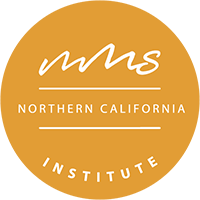WIth the increasing complexity and pace of life, work, and relationships in the modern age, people—executives, professionals, academics, business owners, managers and moms—have become increasingly aware of their need for support and help. Of course, knowing one needs help does not always equal to knowing how one can be best supported or helped. Does one need a therapist, a coach or a mentor? Or, a consultant? It is all very confusing. And, of course, there are informal options such as talking to your manager, a trusted family member, friends or a colleague.
This blog post covers:
- An overview of the formal types of support that are available–therapists, mentors, consultants and coaches
- Sheds light on when you may need a particular type of support
- The premise behind Coaching and what to expect from a Coach
The key to getting the right help is understanding what you need, and what type of help you can expect from the expert.
The overview is followed by a deep dive into coaching, expectations, types of coaching, and what to expect from a professional coaching relationship.
Overview of Consultants, Mentors, Therapists, and Coaches
A consultant provides professional or expert advice or services that you may need at work (tax advice or business expansion strategy) or for your home (establishing a new garden or college options for your high school senior). Consultants are experts in their fields and have a clear definition of the services and expertise they can provide.
A mentor has experience working in your field, is senior to you, and provides trustworthy advice on your career or job. Many of these relationships are at work where a more senior leader will share personal experiences on how he / she navigated a business problem, shed light on career paths, and connect the mentee to others who could be of further assistance. These can be authentic and meaningful relationships where role modeling by the mentor can be an important source of inspiration for the mentee.
A therapist is used when one needs a trained mental health professional to heal from mental or emotional problems, past or present trauma, anger, or illnesses that do not require medication or surgery.
A professional coach helps an individual to unlock their own potential to improve performance, maximize potential, gain clarity, and achieve goals. For example, a tennis coach can help improve one’s game, a math coach can help coach a brilliant math student for a competition, a relationship coach can help improve relationships with one’s children, spouse, or parents and a business coach can help you advance your career and enhance your leadership skills.
It is important to keep in mind that professional coaching is not about dealing with trauma. It is not psychotherapy. It is not expert advice from a lawyer, doctor, or accountant.
One way to think about it: Your life is good but you want it to be great, then you are ready for a Coach.
The Premise Behind Professional Coaching
The coaching assumption is that the client knows their own answer and simply needs support to discover it. They will ask the right questions so you can discover or uncover or realize the answer that is right for you. They will talk you through your fears and help you examine your fears. A coach will help you reframe the stories you tell yourself so that they no longer stop you or hold you back from your goals.
The best coaches are open, curious, and make you think about possibilities. Once you know, you can’t unknow. When you figure out the answer, it is not possible to go back.
A coach will help you reflect on why you may have reacted a certain way and explore a new way of looking at problems and instead of reacting, make a conscious decision on how you choose to respond to them.
In summary, the right coach will …
- Empower you to identify and confirm objectives and clarify outcomes
- Enable you to examine assumptions, explore options, discover pathways and determine next steps
- Enhance your awareness of choices and confidence in your decisions
- Register accomplishments, record next steps, support steady progress
- Be Present to help you find your answers, Not to Know. Not to be the Expert. Not to be the Therapist.
Is it important for a professional coach to be an expert in your field or have experienced what you are going through? The best coaches know nothing about your field of expertise and may not have experienced what you are dealing with, but they are trained in asking you open-ended questions so you get clarity about your problems, can consider your options and in the process, they help you find your answers.
Executive Coaching
Even the most accomplished leaders and executives look for a coach because many times in the workplace, as a leader, there are very few people with whom you can openly or honestly share your challenges or concerns without being judged or without causing a loss of confidence in your ability to deliver. And, it may also be difficult to know who to trust in challenging work environments.
A coach can serve as a person you can trust, is someone who has your back, is on your side, and will give you honest feedback. You can confide in your coach and through the process, make your own decisions on how to proceed. This is invaluable.
A coach can also help you become a better leader by helping you gain clarity on your values and your vision. They can help you create a plan on how you will achieve your goals and keep you accountable. With clarity, comes confidence and the ability to inspire others and lead them on the journey together to accomplishing the mission.
A coach can help you understand how you can fix a dysfunctional leadership team by encouraging you to think through the team dynamics, explore ideas for shifting the dynamics, improve your relationships with individuals on the team, and help them improve their own relationships so that they can move forward together.
For aspiring leaders, a coach can help you get that promotion, surpass your goals, manage office dynamics, and create a work-life balance.
Coaching for Women, Coaching for People of Color & Coaching for Minority Professionals
Being a leader is hard enough – you may be under intense scrutiny from your teams, your bosses and others – but as a woman, person of color or minority, intersectionality (the mix of gender, race, color, class, immigration status, accent and more) creates additional pressures. You may be held to a different standard, judged more harshly, not given the benefit of doubt – you are an anomaly. People may be looking for reasons as to how you got to where you got. A coach can help you navigate unconscious bias, and make progress in spite of what may be a challenging environment.
A Coach (not a Therapist) for Personal Relationships
Working with a coach to improve or change personal relationships is all about taking action now, it is about improving your relationships for the future. These types of situations are best suited to working with a coach. Keep in mind that the coach, unlike a therapist, will not be about healing relationships, understanding what went wrong in the past, or letting go of the past.
Getting Unstuck with a Professional Coach
Feeling stuck is about not feeling right with your work, your day, or personal life. You don’t feel not excited about the day or going to work but you don’t know what the right thing is. Coaches help you get unstuck by helping clarify what’s important, what makes you happy, what you enjoy doing. And, what’s stopping you from getting there and what’s stopping you from charting a path to your goal.
Coaching Modalities and Beyond Silos
Coaching is moving beyond asking discerning questions. Many coaches use different modalities in working with their clients.
For example, health and well being need more than conversations. A coach may be an experienced yoga teacher and practitioner and can help you design a grounding routine as a part of your coaching. This can help you reduce your stress and frustration levels, be present, silence your mind, and relax you so you can have a more impactful coaching session. A coach with a mindfulness practice can take you through a visioning process to help identify goals.
Coaches who have been athletes and continue a practice of vigorous exercise can help you connect your mind and body through high-intensity or low-intensity moves. Using both mind and body, you can tap into feelings, into stress, release tension, uncover what’s holding you back in a completely different way.
Sometimes, we may believe there is no problem, and doing yoga or other body techniques (for example, breathwork or qigong) can open the mind to a different reality. Some coaches even use horses to help clients face their fears and process emotions.
What would you like a professional coach to help you with?
- Be less… stressed, frustrated.. More… balanced?
- Have more… time, money, job?
- Feel… loved, happy, confident, healthy?
The MMS NorCal Coaching Collective brings together professional coaches with many modalities, skills, and passions. You may find your coach in our collective.
Here are three articles on this blog that can also help you further understand the value and benefits of a coaching program:
- When you Need a Professional or Executive Coach
- The Actual ROI of Coaching
- How a 40 Billon Dollar Global Company Launched an Internal Professional Coaching Program


